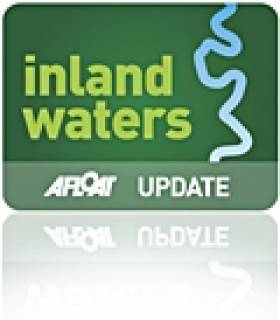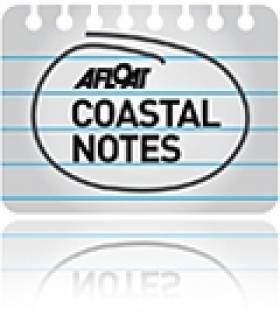Displaying items by tag: Fracking
#Fracking - Fracking in Northern Ireland could pose a serious risk to endangered fish species, as a cross-border group of anglers highlighted last weekend.
The Irish Times reports on the protest rally in Enniskillen on Saturday 1 March that has called for a referendum on fracking in the North to coincide with this May's local elections.
Their concerns come on the heels of January's poor assessment of Stormont's regulatory powers over shale gas extraction beneath some of the North's inland waterways by environmental group Friends of the Earth.
“We have the highest degree of protection from the EU, but it would only take one accident to destroy the lake if they start to drill,” said rally organiser Malcolm Finney of Lough Melvin, home to rare species such as sonaghan trout and Arctic char.
Beyond the island of Ireland, meanwhile, fears of an 'ocean catastrophe' are growing as mining interests turn their attentions to the unexplored depths of the world's seas previously thought inaccessible.
As The Guardian reports, marine scientists are alarmed at "the prospect of a race to the bottom of the ocean – a 21st-century high seas version of the Klondike gold rush."
As prices for metals extracted by traditional mining methods rise, the temptation to harvest ore deposits from sea floor sediment only grows - but at what price to the world's marine ecosystem? The Guardian has more on the story HERE.
Environmentalists Lack Confidence In NI To Regulate Fracking
#Fracking - Northern Ireland's inland and coastal waterways could be at risk from contamination by fracking activity, warns an environmental group.
The Belfast Telegraph reports on Friends of the Earth's poor assessment of Stormont's regulatory powers, with the group citing an array of illegal landfills and quarries across the North as a worrying precedent for any future fracking operations to extract shale gas.
In particular, FoE spoke out about licences for oil exploration granted for areas that cover wetlands, river catchments and marine zones - including Loughs Erne and Neagh, Belfast Lough and the Causeway Coast.
The Belfast Telegraph has more on the story HERE.
#Oil&Gas - The public consultation on the first stage of environmental assessment for developing an oil and gas licensing framework in Northern Ireland's inland waters continues till next Friday 14 June.
The 'Scoping Report' was issued on 24 April last by Northern Ireland's Department of Enterprise, Trade and Investment (DETI) and marks the first step of the EU-mandated Strategic Environmental Assessment (SEA) process.
The current consultation seeks comments on the appropriateness of the proposed scope of the SEA and the proposed assessment methodology.
Anti-fracking campaigners Good Energies Alliance Ireland (GEAI) argue that any future oil and gas exploration or extraction in Belfast Lough or Larne Lough would include horizontal drilling and franking.
With one week left to go, GEAI is among those urging the public to have their say in the consultation, citing the 1,300 submissions received by the EPA that the group claims it encouraged on a proposed franking research study.
Northern Ireland has four existing petroleum licences across three main areas of exploration in Antrim, Fermanagh and Derry.
Minister Welcomes Public Consultation on Fracking Research
#CoastalNotes - Minister for Natural Resources Fergus O’Dowd has welcomed the launch of a public consultation by the Environmental Protection Agency (EPA) on the proposed terms of reference for more detailed research to be carried out on the potential impacts of unconventional gas exploration and extraction on the environment, especially for inland and coastal fisheries.
Speaking last Friday, Minister O’Dowd said that he is particularly pleased that all interested parties, including individual members of the public, will have an opportunity to comment on the scope and objectives of this further research, thereby facilitating consideration of the broadest possible range of views.
Minister O’Dowd went on to say that “the detailed research to be commissioned by the EPA will build on other studies and research in this area and will inform future decision-making on any application that proposed the use of hydraulic fracturing in Ireland.”
Minister O’Dowd reiterated that until the EPA study has concluded and there has been time to consider its findings, the use of hydraulic fracturing in exploration drilling will not be authorised in Ireland.
































































